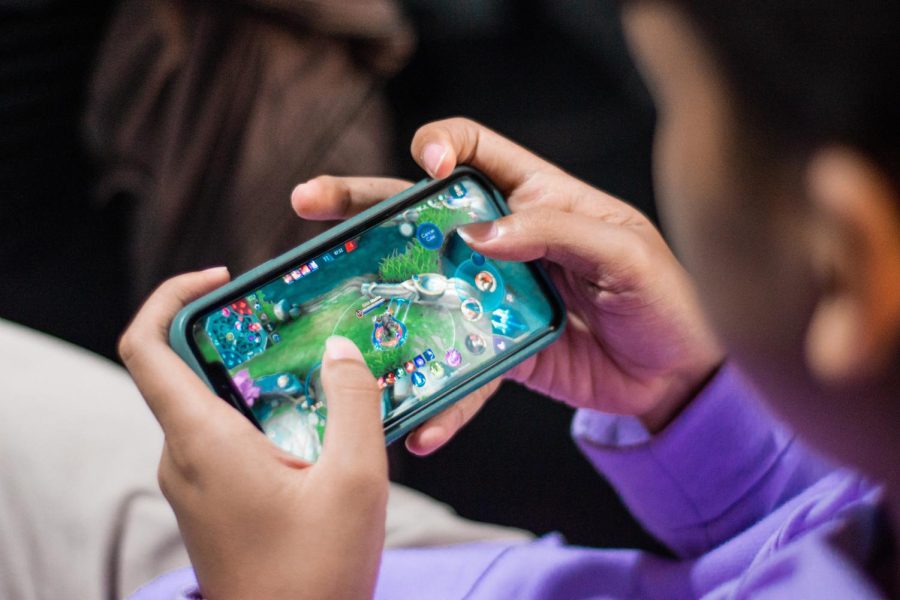A Closer Look at Mobile Game Addiction
Inner compulsion or a biological clasp?
Photo by Pandhuya Niking on Unsplash
‘Candy Crush’, ‘Where’s my Water’,’Homescapes’,’Gardenscapes’ , what do all these games have in common? Other than them all being very simple mobile games, all of these games are weirdly addictive! Everyone and their grandma is addicted to these games but have you ever thought why? What makes these games so hard to quit? Well I sacrificed my sanity just to find the answer to this question.

My inquisition began with my mother, who is very addicted to the mobile game ‘Gardenscapes’. Her non stop playing and constant denial of addiction was peculiar and interesting. To answer my doubts, I decided to put myself in her shoes. Gardening was not very appealing so I picked another mobile game, ‘Dragon Den’. This game involves fighting through waves of enemies in a rock, paper, scissors fashion with a team of elemental dragons that you find, train and evolve.
Sound familiar? It is a lot like Pokémon Battles which prompts the player to match titles to summon stronger attacks. There are dozens of games that consist of things like matching tiles and each holds the attention of thousands of players. While my copyies of Skyrim and Legend of Zelda sit on my desk collecting dust, I am hooked to my mobile device, matching digital tiles. This prompts the question: why? Why are hundreds of people hopelessly held on to these games?
The answer is that the developers know how to make these games addictive.
Digital game developers program these games in a way that essentially hypnotizes or hacks your brain. They take advantage of psychological idiosyncrasies that most people aren’t aware of but which have a significant influence on how people behave and, for the sake of this article, their game playing habits. So it’s imperative that we players learn the secrets that game creators already know.
Dopamine is a specialized molecule that is essentially our body’s happy hormone. The happiness that we players experience after unlocking a new area or defeating that particularly challenging boss is caused by our brain “being tickled” by thousands of dopamine molecules. To further understand, we need to jump right into our brains’ dopamine pathway. Dopamine is a neurotransmitter, which means it moves between neurons in your brain. So when a player finally finishes that level, their neurons get flooded with ions which creates tiny electric currents. When that electrical potential reaches the end of the neuron the ions pour in and the dopamine is released into the gap between your brain cells. They then get launched across the synapse, carefully landing in your brain’s dopamine receptors. This leads to a dopamine spike or in simpler terms, a shot of happiness, excitement or satisfaction.
This raises another question: why do players eventually get bored of the games?
One of the main reasons is desensitization. In any kind of addiction, increased stimulant leads to desensitization. For example, a child’s first time having chocolate might feel amazing. However, with continued consumption, the joy of chocolate wears down. This principle works the same for games, food and any other stimulants.

Unlike chocolate, however, mobile games have the ability to regulate the exposure and stimulant amount, thus preventing you from becoming desensitized. Game developers use many tactics to make this happen. In initial stages of game play, users usually have simpler levels, allowing easier dopamine hits. This method is known as a veritable ratio schedule of reinforcement and it’s the same one used in slot machines.
To preserve users’ self esteem and attention to the games, developers prevent users from over playing by enforcing things like lives or hearts which will replenish over time. This leaves the player wanting more, enforcing the addiction and making the reward of a dopamine hit sweeter. This method is called the hedonic treadmill (also called hedonic adaptation), which states that no matter what occurs to a person, their baseline level of happiness will always return.
Studies have shown that lottery winners don’t often experience any more satisfaction than they did before winning the money since their cravings tend to grow concurrently, negating the possibility of lasting contentment. In this case, the game is like our long-distance partner; we spend a few weeks together before they leave and we patiently wait for the next time they’re in town. This is because they have returned to their happiness equilibrium; their situation has changed and they are sustained accordingly. However, due to mobile games and built-in breaks, you never stay in that elevated happiness state long enough to get used to it. Therefore, these games are designed to be addicting and since 14% of people have an addictive personality type, this is the ideal scenario for game developers who can use simple biologically proven methods and attract millions of players.
I hope after reading this article, you have a better understanding of how games utilize human psychology to draw you in and keep you playing. Are you playing the games are are the games playing you?
Hi!, my name is Archita Jangid, I'm a sophomore and I just started attending Piscataway High School so I have a fresh perspective to offer. I like playing...













Mrs. F. • Mar 2, 2024 at 11:43 pm
To Archita Jangid
March 2, 2024
“Are you playing the games, or are the games playing you?”
Best question I’ve heard, relating to mobile games. After concluding that the games (or game developers) are playing me, & that what I’ve spent on boosters & coins could have bought a full-scale video game console, I decided to avoid in-app purchases for any & all mobile games.
Thanks for your article. It was a great wake-up call.